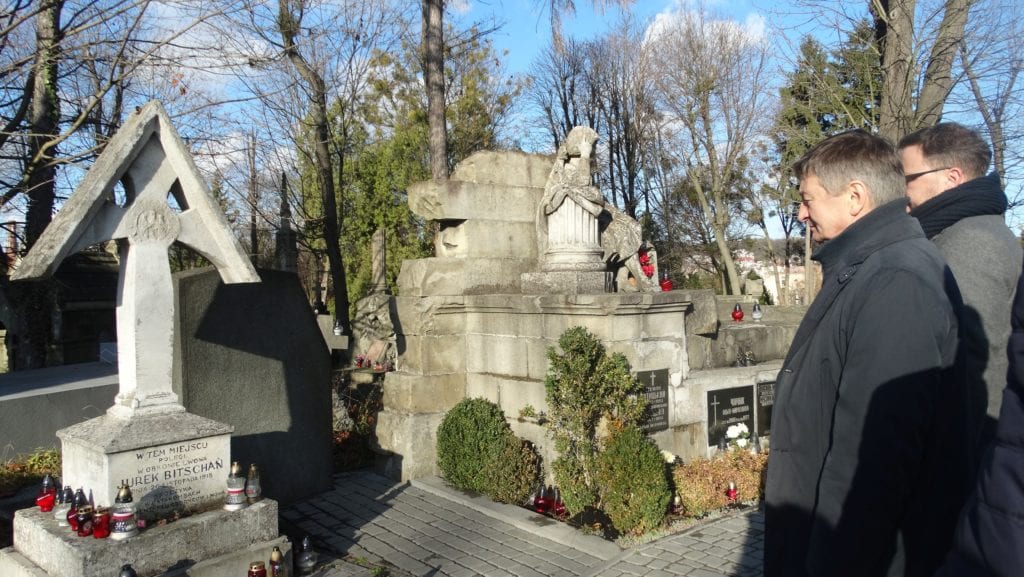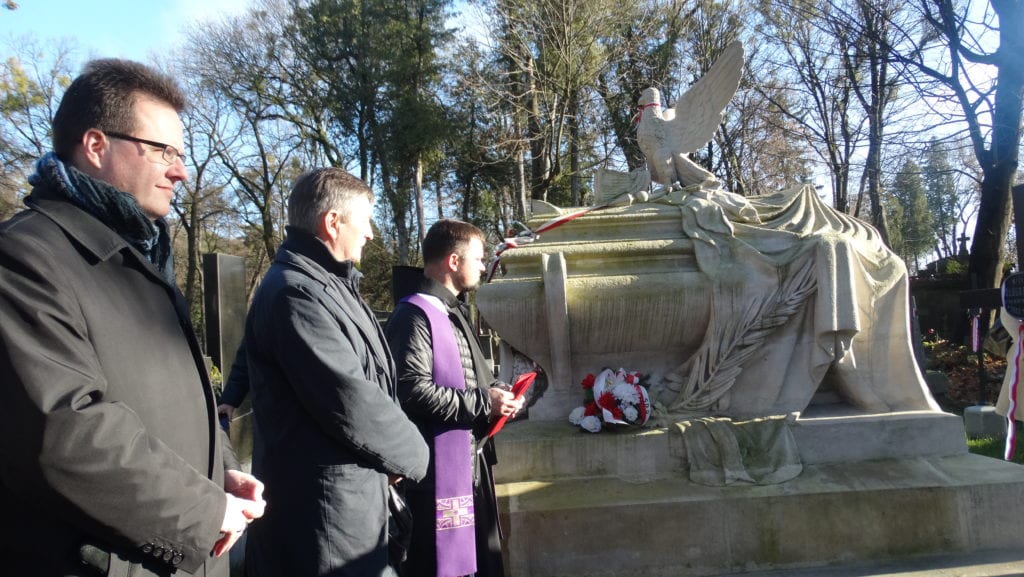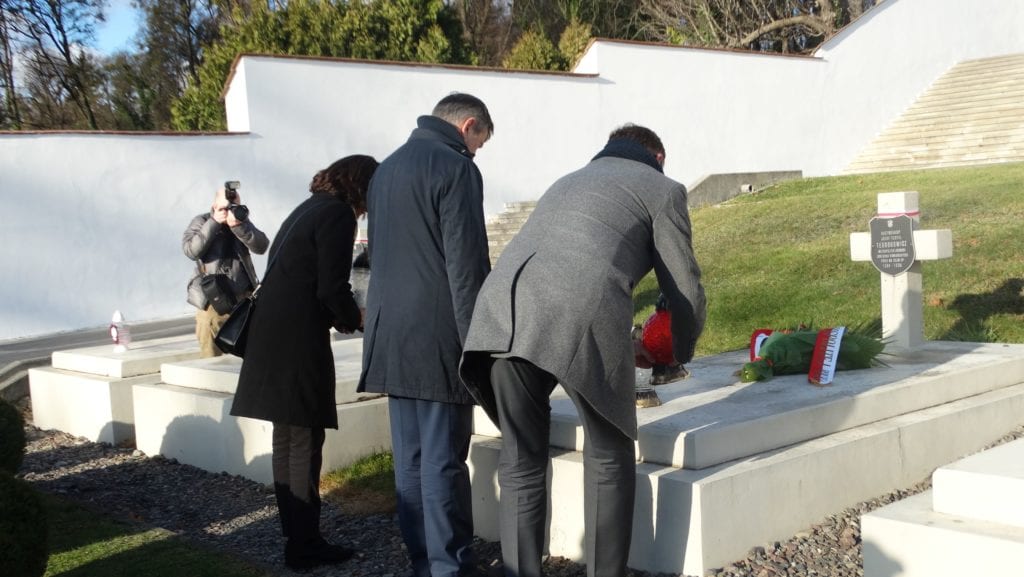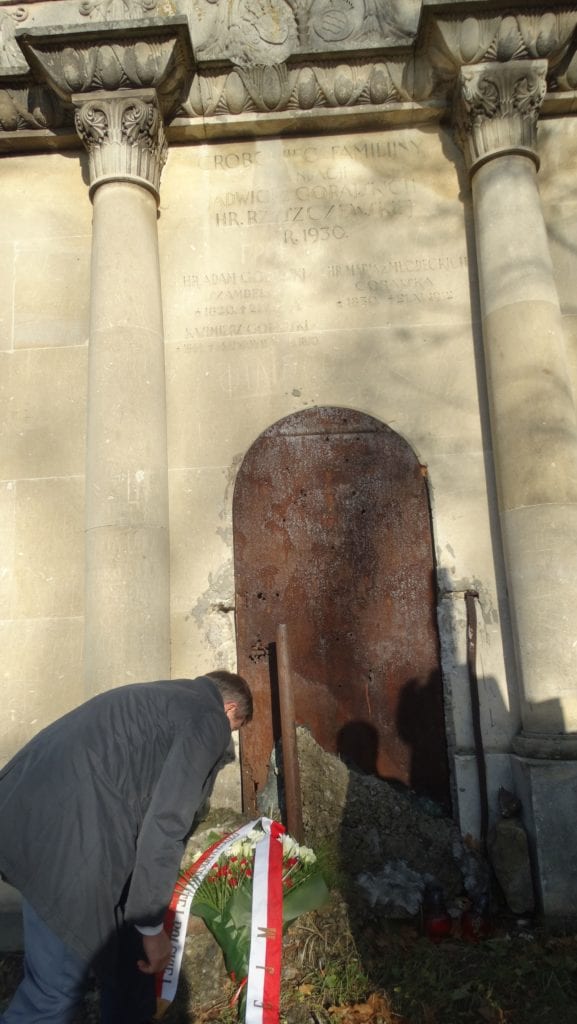On 28-29 November MP Marek Kuchciński, Chairman of the Carpathian Parliamentary Group, together with the Minister of Infrastructure Andrzej Adamczyk and a delegation from the Ministry, participated in talks on the development of infrastructure and Polish-Ukrainian economic relations in Lviv. Issues discussed during the visit included road connections with Ukraine, the creation of a rail-bus connection between Przemyśl and Lviv, the Nizankowice - Malhowice railroad crossing and line 102 from Malhowice to Chyrov and Zagórze.
This topic was dictated by the constantly growing interest in the development of cooperation. Well-developed communication infrastructure is very important for Poland and Ukraine, including border areas. Several million people crossing the border annually via only 11 railroad and road crossings provide thousands of jobs and bring billions of zlotys of profit to local entrepreneurs as well. Interest in Poland is growing, and the best example is the fact that the international IC train from Przemyśl to Kiev and Odessa, launched in 2017, carried more than one million passengers by June 2019, when in earlier years local PKP connections were used by barely a few thousand people.
MEP Marek Kuchcinski together with MEP Kazimierz Gołojuch from Łańcut also met in Lviv with a delegation of Ukrainian parliamentarians: Michał Kniażycki and Orest Solomocha. Both are active in the Polish-Ukrainian bilateral group and are interested in developing cooperation between the Carpathian countries. This cooperation was discussed.
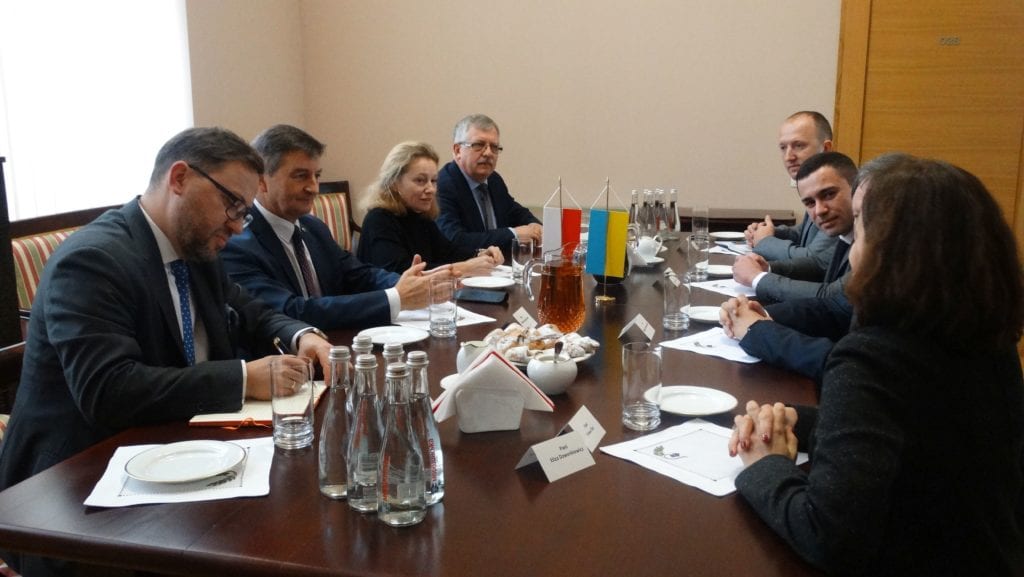
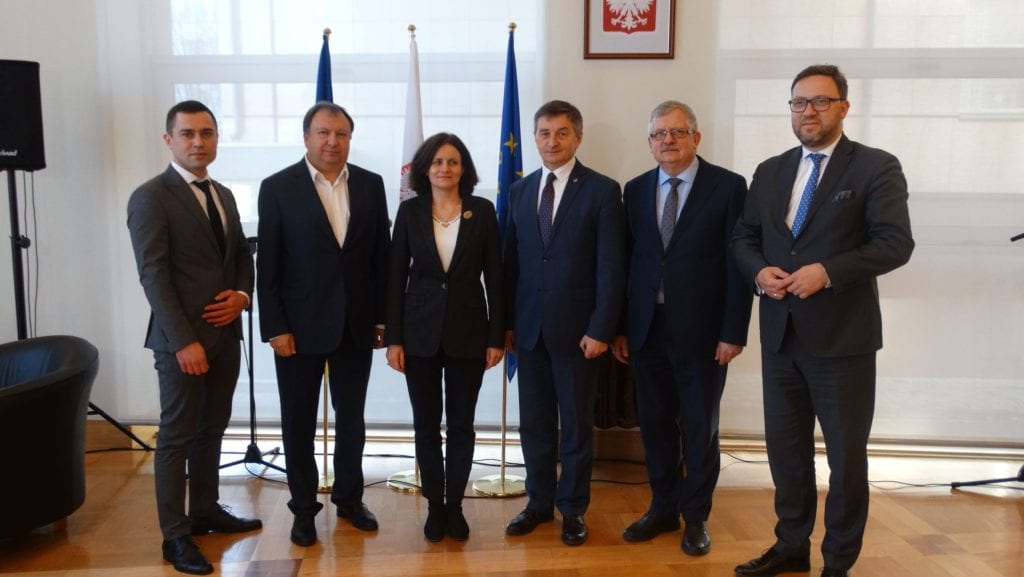
The short visit of the Polish delegation in Lviv was also an opportunity to visit the places where Polish history continues. The main place is the Roman Catholic cathedral In 1656, on 1 April, King Jan Kazimierz took his vows in the cathedral of Lwow. 350 years later, in 2006, the President of Poland, Professor Lech Kaczyński, together with a delegation of Polish parliamentarians participated in a mass during which the vows were renewed by Cardinal Marian Jaworski.
During his memorable visit, President Kaczyński donated a chalice commemorating the events of 350 years ago to the cathedral. The Cathedral of Lviv, an important place for Poland, as it is commonly known, has been receiving support from the Ministry of Culture and National Heritage for years. But the needs are still enormous and Poles are eager to support the cathedral, rich in history and stained glass windows by Jozef Mehoffer and Jan Matejko.
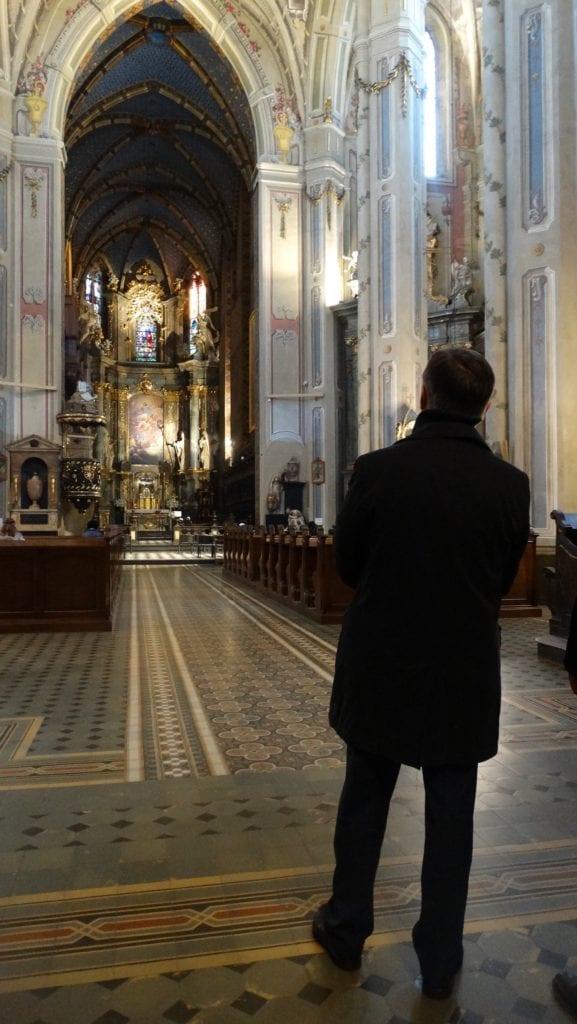
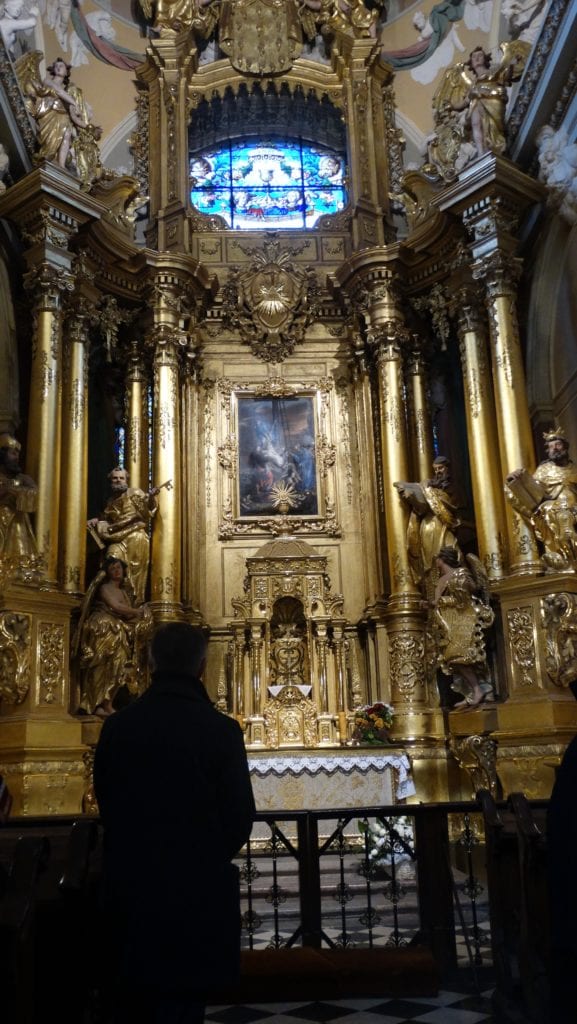
The delegation also participated in the blessing ceremony of the restored graves of the November Uprising insurgents in Lychakiv Cemetery on the eve of the 189th anniversary of the uprising. Flowers were laid at the restored "Żelazna Kompania" cemetery section (the name comes from the iron crosses which were placed on the graves of the insurgents buried in the section in 1880, 50 years after the outbreak of the uprising).
Wreaths were also laid on the graves of Defenders of Lviv in a separate cemetery of the Defenders of Lviv.
An important, and today somewhat forgotten, fact is that many Polish parliamentarians of the Second Polish Republic are buried outside the country, including in Lviv. And it is the natural duty of the Polish state to remember them. MP Marek Kuchcinski, accompanied by the Polish ambassador, laid flowers on the graves of the MP of the Second Republic, Jan Pieracki, a well-known national activist (there is no information about his burial there to this day on the magnificent, although very dilapidated family tomb-capel where the MP rests. He died during the occupation and was buried in conspiracy, but now this lack of name is unjustified!), as well as the Polish Archbishop of the Armenian rite Józef Teodorowicz, member of the Legislative Sejm and senator of the Second Polish Republic, who opened the session of the Legislative Sejm with a sermon in St. John's Cathedral in Warsaw on 10 February 1919.
Parliamentarians of the Second Republic of Poland, resting outside the country deserved to be commemorated and cared for in a special way, so that the Poles living in different parts of the world could visit them, remaining forever outside the borders of the Motherland. Honour their memory!
